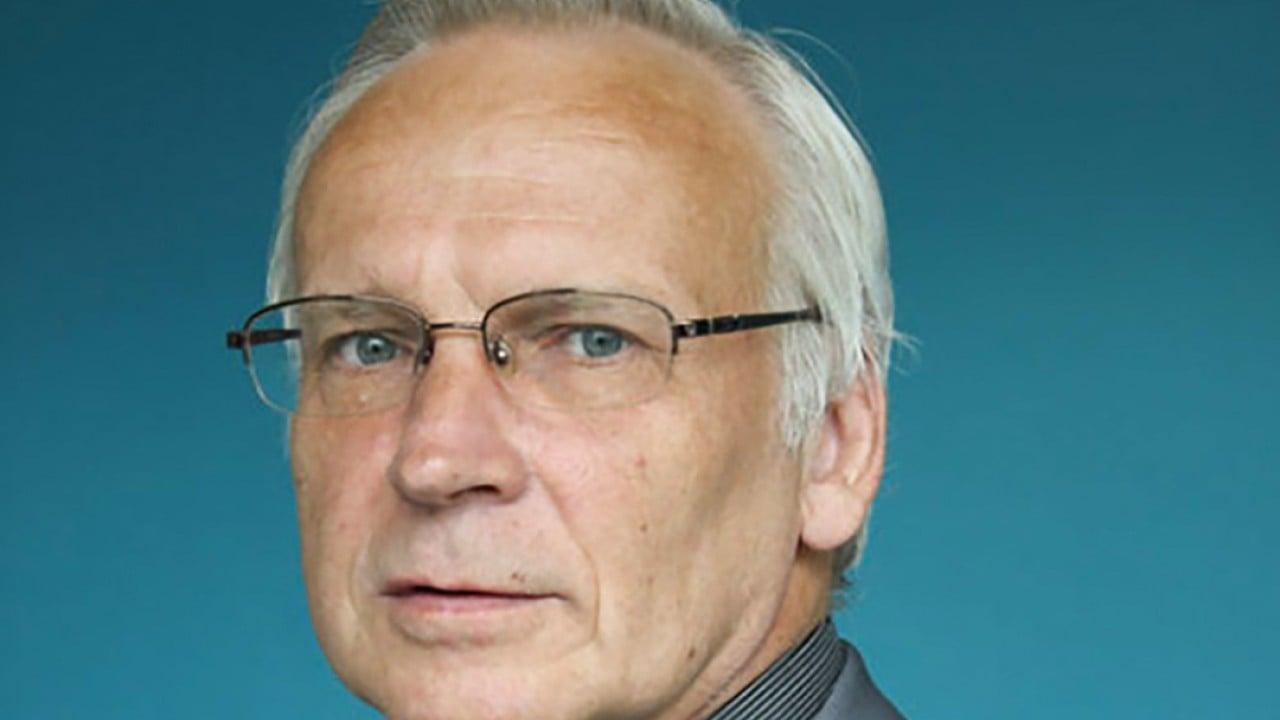
Ni hoped that Semenov would give full play to his international influence, enhance the college’s international visibility and help draw young talent from overseas, according to Chinese media reports that are no longer available on the internet.
Semenov said he was very happy to join the college and work with Chinese colleagues to promote research and technology transfer in related fields, adding that he would like to adapt to his life in China as soon as possible.
Yuriy Semenov in a photo posted with Chinese media reports since deleted from the web. Photo: Handout
The College of Shipbuilding Engineering was founded in 1953 under the former Military Institute of Engineering of the Chinese People’s Liberation Army. It has since become a leading institution in the country for the development of ships, naval armaments and maritime technology, according to its website.
Semenov’s LinkedIn profile shows he worked as an applied mathematician specialising in fluid dynamics for the National Academy of Sciences of Ukraine for the past four decades.
After first working on aviation-related applications at the Institute of Technical Mechanics in his hometown of Dnipro, he switched to ocean engineering and moved to the Institute of Hydromechanics in the capital Kyiv.
Forced to leave Kyiv last year following the Russian invasion, Semenov came to the University of East Anglia in Britain under the newly created “Solidarity for mathematicians” programme, which provides short-time financial support and research resources for mathematicians from war-torn regions.
In a podcast with the popular mathematics magazine Plus late last year, Semenov said he was networking and looking for a job outside his home country.
“The work of a mathematician may always be possible. All they need is a table and a computer. However, they also need to communicate with others and be part of a team, which is not possible in Ukraine right now,” he said in the podcast in November.
Semenov, who is thought to be in his early 70s, visited and worked at a number of research institutions around the world over the past two decades, including Japan, South Korea, Norway and Britain.
“I’m looking for my next job,” he said on the podcast in response to a query about his future plans.

